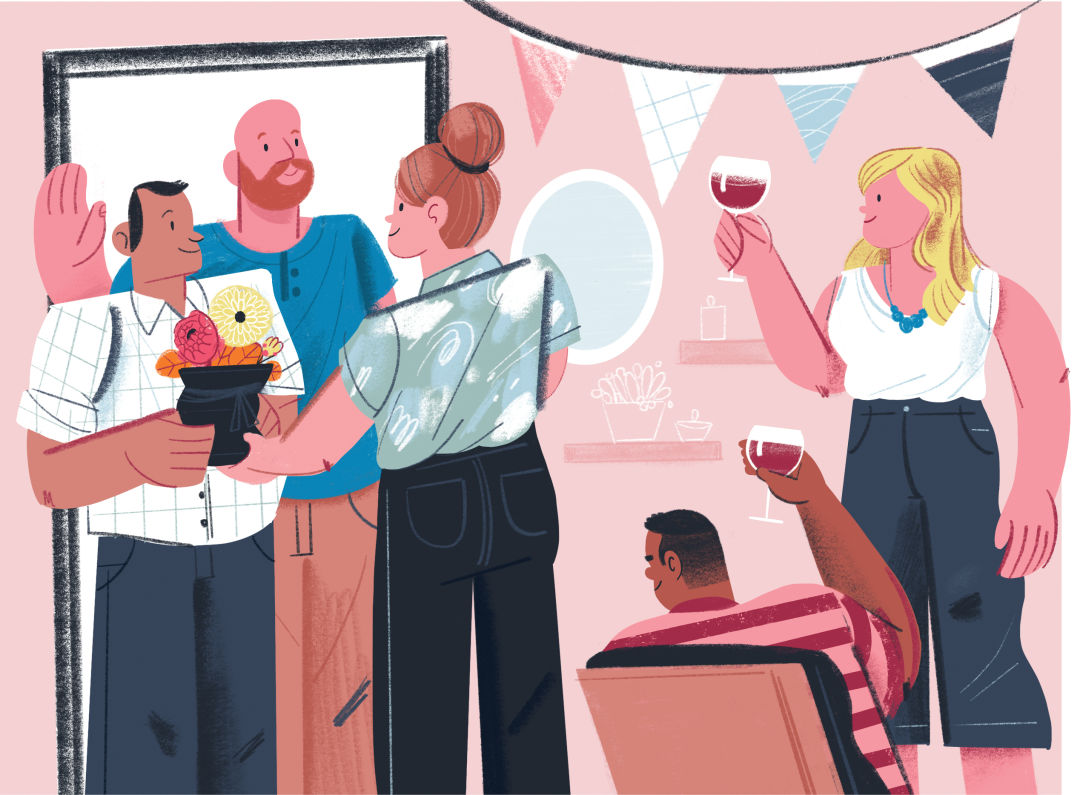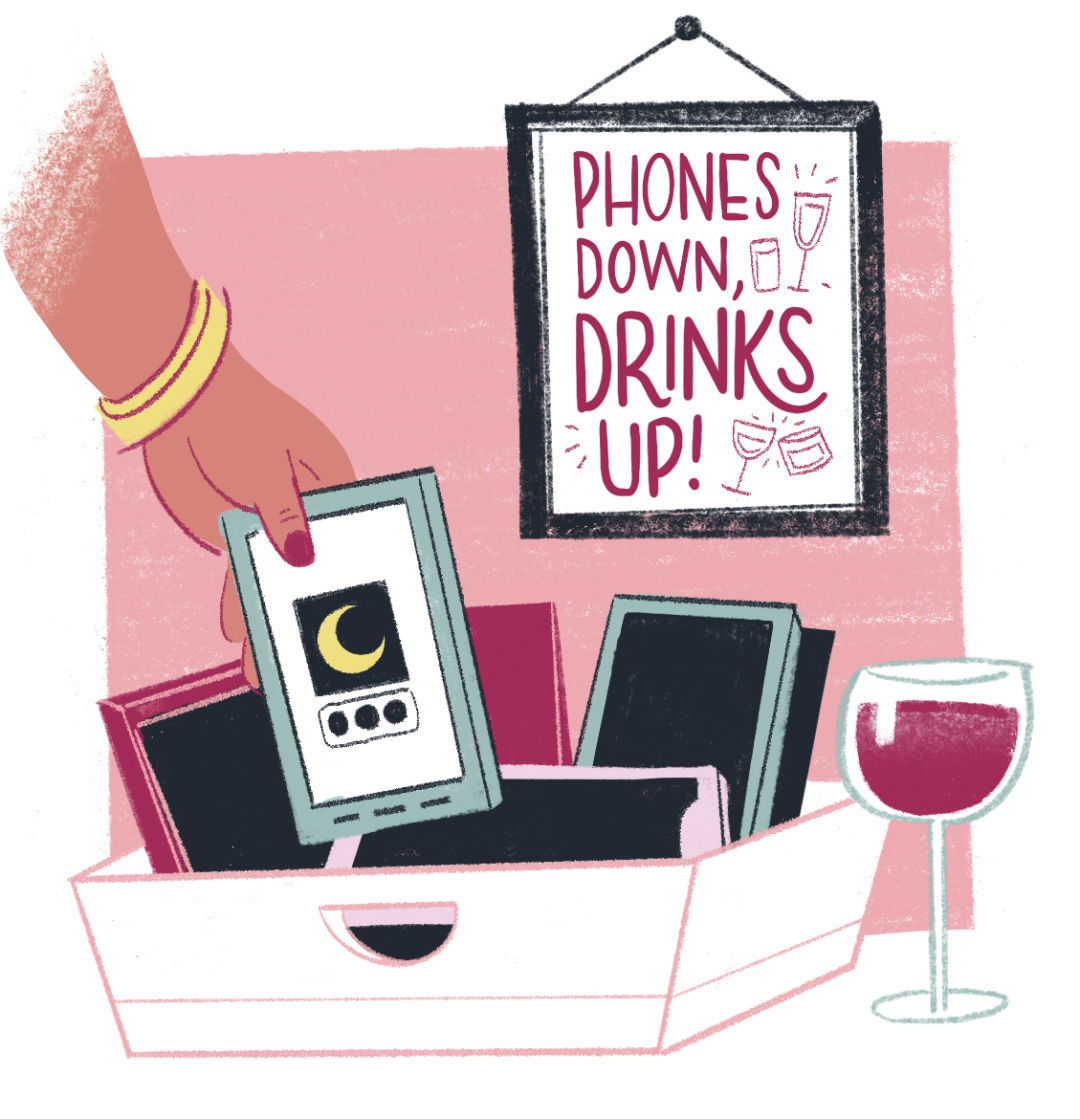10 Frequently Asked Party Etiquette Questions

Qthanks for advances in technology and changing social norms, modern etiquette can be confusing. “With our generation, there are no rules anymore,” says Mostess CEO Lindsey Rose King. “What our grandmothers and great-grandmothers were doing does not apply to 2019. It’s the wild, wild west.” Which is why we asked King and Houston event planner Taylor DeMartino—the man behind such glitzy affairs as the TUTS 50th Anniversary Gala at the Post Oak—for their solutions to 10 common party puzzles.
When should I give a host a gift?
Anytime an event is hosted in someone’s home, and on occasions when they are the guest of honor, such as a baby shower or engagement party. “For me the classics are: flowers that are already in a vase, a potted plant, a high-end, neutral-scented candle, or seasonal sweets,” King says. “Consumables—something the host is going to use.”
Any advice on invitations?
The formality of your event should determine the formality of your invitees. A mailed invitation to a wedding or large-scale social event should have the largest buffer—six to eight months, DeMartino advises, since “wedding season and gala season always fall on top of each other, and people are vying for weekends.” Other snail mail should arrive four to six weeks before the big day, King says, and more casual gatherings can go digital via Paperless Post or Facebook events. “But make sure you have the correct privacy settings for online invitations,” King warns. “You don’t want someone to feel left out.”

How can I keep people off their phones?
Be direct! “If it’s an intimate setting, I like to ask people to disconnect from their phones, be in the moment, and not be interested in what’s happening outside,” DeMartino says. King opts for a cute sign displayed near the wine with a directive such as, Phones down, drinks up! “It creates such an awesome environment when people are connecting face-to-face as opposed to doing Instagram stories,” she says. “I think it’s very rude to be on your phone as a guest in a host’s home.”
How late is fashionably late, and how late is just plain rude?
“Everyone’s 10 minutes late in Houston,” King says. “It just happened.” Anything more than that, tell the host. And if you’re the host, consider giving guests a buffer: “I host a Tonys party every year,” DeMartino says, “and I try to invite everyone an hour before the show, because I know people will be late.”
How can I co-host a party without wanting to kill the other person?
Real talk: “Friendships can be broken over co-hosting an event,” King says. “People don’t like to do this, but you need to discuss financials up front. Who’s investing in this party, and what areas are they investing in? Sometimes ‘invest’ is a softer word to use than ‘Who’s forking over the money?’” DeMartino agrees, adding that the key to success is setting boundaries early. “Separate tasks by what each person is good at,” he advises, “and have regular check-ins.”
How do I implement a dress code?
First of all, know that if you don’t, “You just have to be comfortable with an eclectic mix of outfits,” King says. “Houston is a super-casual town.” If you’d rather specify, King advises including it right on the invitation. “If you don’t want to outright say it,” she adds, “there are cuter ways to hint at a dress code: ‘We’re going to take a group photo at the end, so everyone dresses to impress.’”

How do I handle a guest who’s overindulged?
“You have to read your crowd,” DeMartino says. If it’s a fun, lighthearted group of friends, “you can call that person out and get them an Uber.” But if it’s a larger event where folks don’t already know each other, handle the situation privately. “Always make it a side thing—it’s an embarrassment for everyone,” King says. Find someone close to the party animal and quietly suggest they help. “It’s a polite way of finding the solution and always considering their safety over anything else,” DeMartino says.
How do I get people to actually RSVP?
King includes something on the invitation, along the lines of “Out of respect for the chef and the caterers, please let us know if you plan to attend.” She also makes a point of using terms like “formal” and “seated” so that “people take the invitation a little more seriously.” DeMartino is always sure to make it easy to RSVP with a digital option, but advises that even so, hosts should expect the headcount to fluctuate. “I usually gauge that, on average, 20 to 30 percent will not come to your event.”
Is it rude to still be cooking when my guests arrive?
Generally, no—if it’s an intimate gathering. “Nowadays people’s kitchens are the heart of the home,” King says. “Have an appetizer out on the island and an open bottle of wine while you’re finishing up the entrée.”
When should I ask for help?
“There’s never a wrong time to call a professional,” DeMartino says. “We do this on a regular basis, and we can help you save money in ways that you might not know exist. I think people will be surprised at times by how affordable it can be to have a professional plan for them.”
